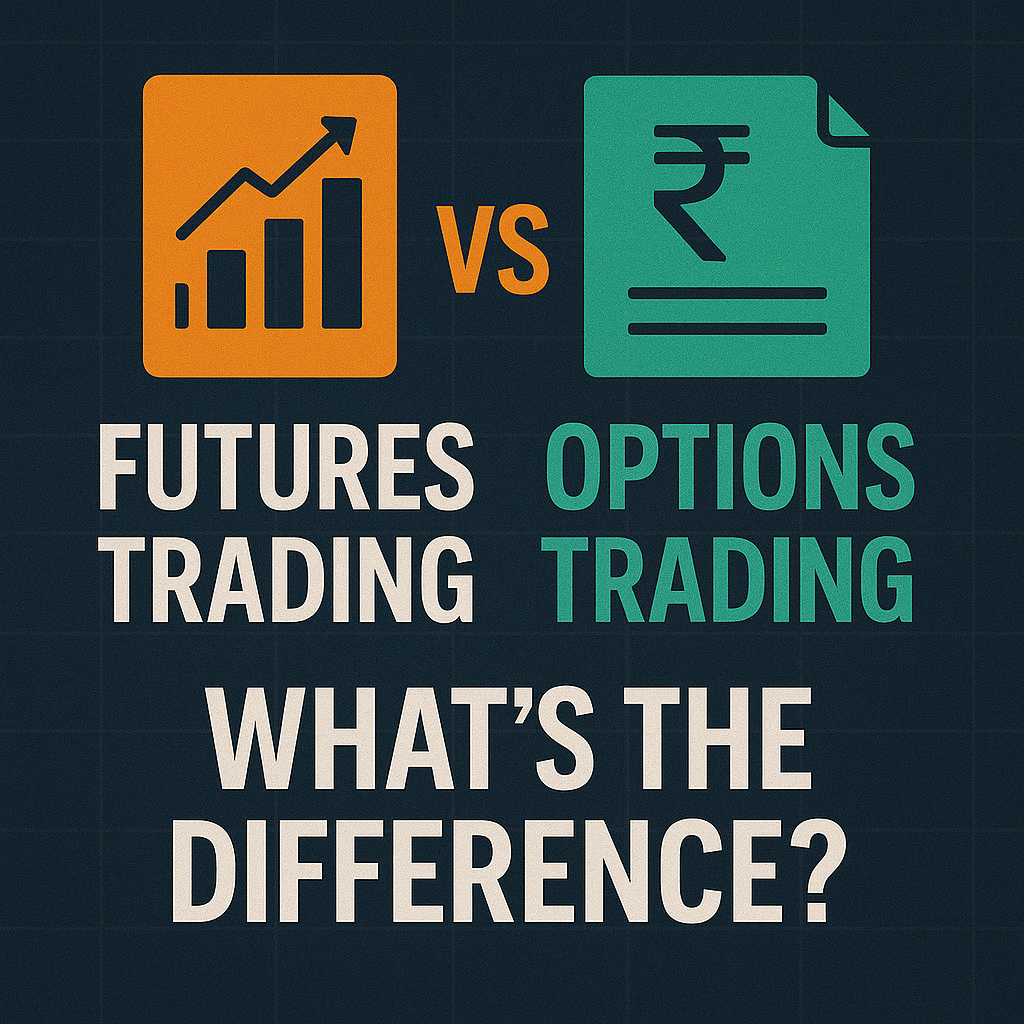When it comes to the stock market, two common trading tools often confuse beginners—futures and options. Both are powerful ways to profit from price movements without owning the actual asset. But they work differently, have different risks, and serve different purposes.
In this blog, we’ll break down futures vs options trading in easy language, explain how each works, and help you decide which might suit you better
🔍 What is Futures Trading?
Futures are contracts to buy or sell an asset at a fixed price on a specific future date. When you enter a futures contract, you’re agreeing to follow through on the deal, whether you make a profit or loss.
Example:
Let’s say you think Nifty 50 will rise next month. You buy a Nifty futures contract today. If the index rises, you make a profit. But if it falls, you lose money.
Key Features of Futures:
Obligation: You must settle the contract, either by closing the trade or holding till expiry.
Margin Required: You pay a percentage of the full value as a deposit.
Unlimited Risk: Losses can be large if the market goes against you.
High Liquidity: Futures are actively traded, especially on indices and commodities.
🔍 What is Options Trading?
Options are contracts that give you the right, but not the obligation, to buy or sell an asset at a fixed price before a certain date. You pay a small fee called a premium to get this right.
There are two types of options:
Call Option: Right to buy
Put Option: Right to sell
Example:
If you think a stock will rise, you buy a call option. If it does rise, you can buy it at a lower price and profit. If it doesn’t, your loss is limited to the premium you paid.
Key Features of Options:
No Obligation: You can choose not to exercise the option.
Lower Capital Needed: You only pay the premium, not the full value.
Limited Loss: Your maximum loss is the premium paid.
Can Be Complex: More strategies and factors like time decay and volatility affect pricing.
🧠 Which One Should You Choose?
Choose Futures if:
✅ You’re confident about the market direction
✅ You can manage risk and have enough capital
✅ You want higher leverage and liquidityChoose Options if:
✅ You want to limit your risk
✅ You’re starting with a small budget
✅ You’re okay with complex strategies and want flexibility💡 Pro Tips for Beginners
Understand the product before trading—don’t jump in based on hype.
Practice on a demo account to learn without risking real money.
Use stop-loss orders in futures trading to control losses.
Learn option Greeks (like delta, theta) if you’re serious about options trading.
Avoid high leverage in both until you gain experience.
⚖️ Futures vs Options: Key Differences
Feature Futures Options Contract Type Obligation Choice (Right, not obligation) Risk Level High (Unlimited) Lower (Limited to premium) Capital Needed Higher (margin required) Lower (premium only) Profit Potential Unlimited Can be high, but more complex Best For Traders comfortable with risk Traders looking for limited risk




